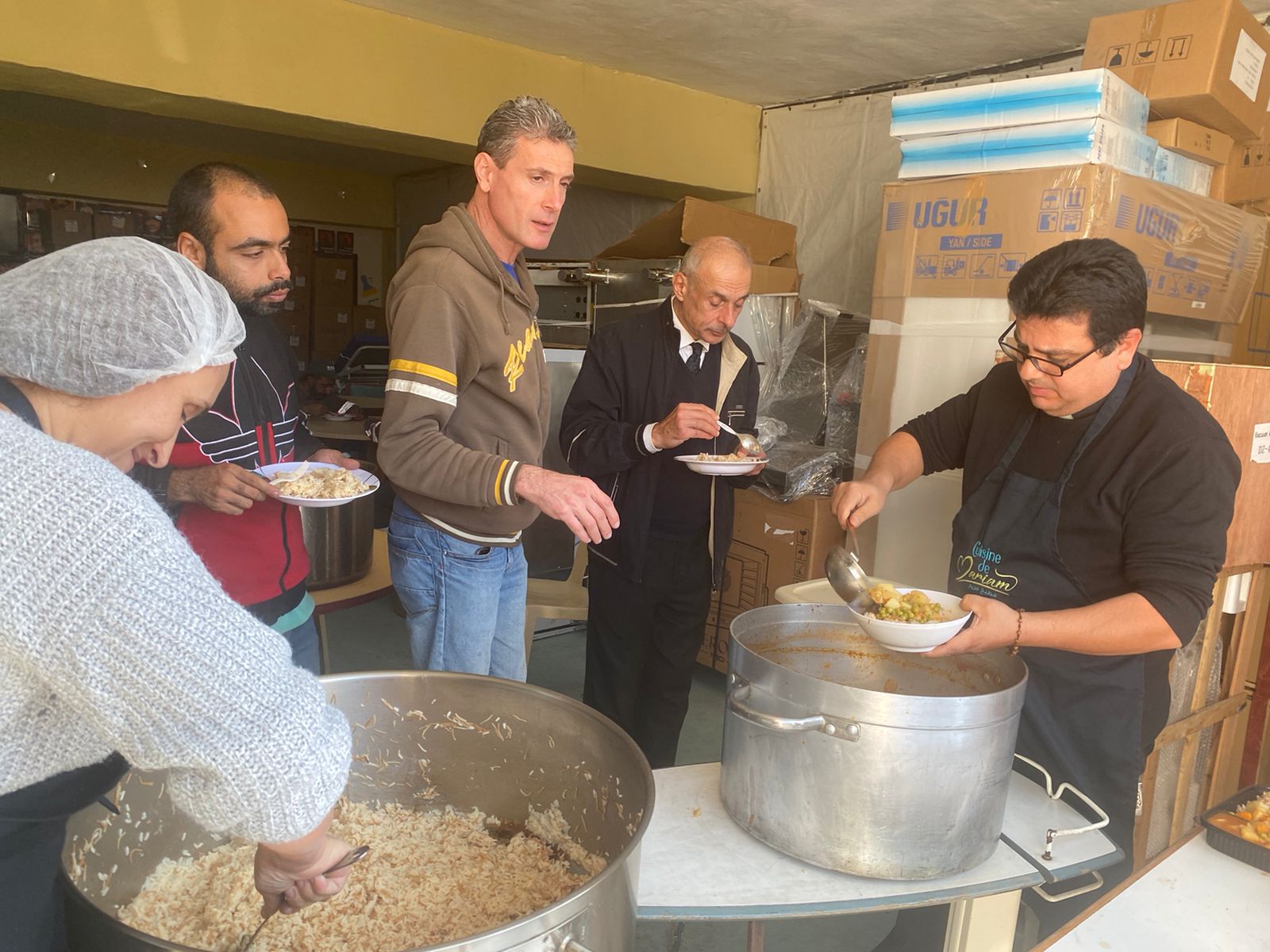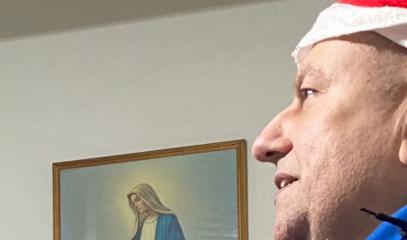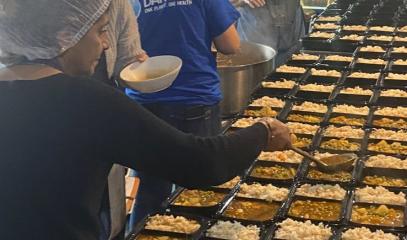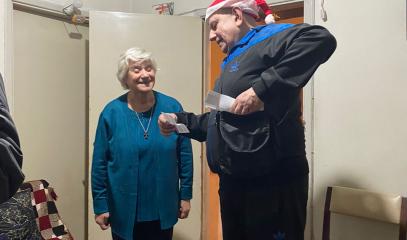Fr Hani and the 'House of Mariam', a charity open 'to everyone’ against the prison of poverty
For the Maronite priest, Christmas in Lebanon means cooking and offering free meals in an eatery open to Christians and Muslims, Lebanese and foreigners, without asking papers. This is a response to a growing need in the port district, which also helps seniors living in the Christian neighbourhood of Achrafieh. Almost 20 per cent of the Lebanese population lives below the extreme poverty line.
Beirut (AsiaNews) – Firm, but always caring, Fr Hani Taouk, 50, raised his voice: "This is my kitchen, no one has the right to ask anyone for their papers. Everyone is welcome: Lebanese, Syrians, Palestinians, whites, blacks, Muslims, Christians, everyone."
The founder and manager of a restaurant that offers free meals, "Mariam's Kitchen", in a semi-industrial area next to the Port of Beirut, this married Maronite priest reacts to the words of a woman who has come to have her midday meal in his eatery.
She had just called out to a man who was having lunch with his young son, telling him that "the Lebanese have priority" and that he has no right to "take their share". She even took the liberty of checking his Lebanese identity card that he had just taken out of his pocket!
This was the only incident during the meal, a pea-potato stew, served with rice vermicelli. A delight, with a good sauce, not light at all.
The incident is symptomatic of the tensions that currently reign between Lebanese and displaced Syrians in Lebanon, whose intrusive presence is perceived as "a threat", particularly over jobs and schooling. There are an estimated 2 million Syrians in Lebanon, compared to 4.5 million Lebanese.
According to conflicting statistics, between 30 and 75 per cent of Lebanese now live below the poverty line, in a prison without bars. What is certain is that some 20 per cent of them even live below the extreme poverty line (US$ 1.5 per day).
Seated here and there in the restaurant, about 30 hungry mouths waited impatiently for the meal, which they ate in religious silence. A dozen were elderly people with emaciated and hairy faces, a few day labourers, and longshoremen from the Port, as well as Asian workers from the public sanitation company, Syrian mothers with their children, residents of the Medawar region, and one or two others. A few women came with their pots and pans to take their meals home. A volunteer, Béatrice*, a taxi driver, will take meals to people who are bedridden or who, for various reasons, are unable to come.
La Cuisine de Mariam, founded a few years before the explosion at the Port of Beirut (4 August 2020), now serves 1,200 meals a day. "The needs are increasing as similar eateries set up after the explosion close due to lack of money," said Fr Taouk. A huge assistance effort is underway thanks to donations from Lebanon, especially food importers, but also Europe (France and Austria in particular).
Married with four children, Fr Hani Taouk is trusted by everyone. The "House of Mariam" helps a prison administration that is short of money. It serves police stations in Beirut and its Christian suburbs. "The gendarmes are paid in junk money," Fr Hani explained, “since the national currency lost 95 per cent of its value. Their rations are barely enough for them." The restaurant gets a call every morning with the number of people arrested, who are provided with a hot meal.
The kitchen and reception area are moving to a space near two large rooms, a space built according to European standards, funded by the maritime freight giant CMA-CGM. About 13 paid employees work at the eatery. Two women cut bread for sandwiches. "It's for the children’s break in public schools," said one. Between two requests, the priest provides a pill to someone with a headache. "So far, I've handed out 1.5 tonnes of this drug," Fr Taouk explained, pointing to a cardboard box the size of a fridge. He then turned to a Lebanese man who has come to tell him something.
Society’s have-nots
In a country where some restaurants are still crowded and where the wealthy still celebrate Christmas, we met people who have nothing, along with a group of Christians led by a widowed engineer, Elie M. (*) and a woman volunteer close to the Legion of Mary association.
They live in tiny, unsanitary rooms, in converted warehouses, small, unventilated flats smelling of urine, burnt food, mustiness and a few detergent products, under the unmistakable and various pictures of the Virgin, and the nativity scene de rigueur at this time of the year.
Over three hours, we met seven of these outsiders – some of them living under the threat of eviction – whom no social worker visits, unable to afford a hospice, men and women who are often lonely, waiting to go from this world to the cemetery, with little hope.
During these visits, the same routine: a New Testament verse is read, an exhortation is quickly made, an envelope with US$ 50 in Lebanese currency is handed over, and a Christmas hymn is sung as a farewell. Too short a time for those who are visited.
The most moving story this afternoon was that of Loulou*, a visually impaired woman who radiated serenity, and who lives thanks to a corneal transplant obtained from a woman whose son died in an accident. “This way," she said, "she'll see the picture of the one she's praying for." When the graft degenerated, the donor gave her . . . one of her eyes. There is no doubt that at the end of their exile, these two friends will see Christ with their eyes closed.
(*) Names changed or masked to protect the privacy of those mentioned.
22/09/2020 12:45










.png)










